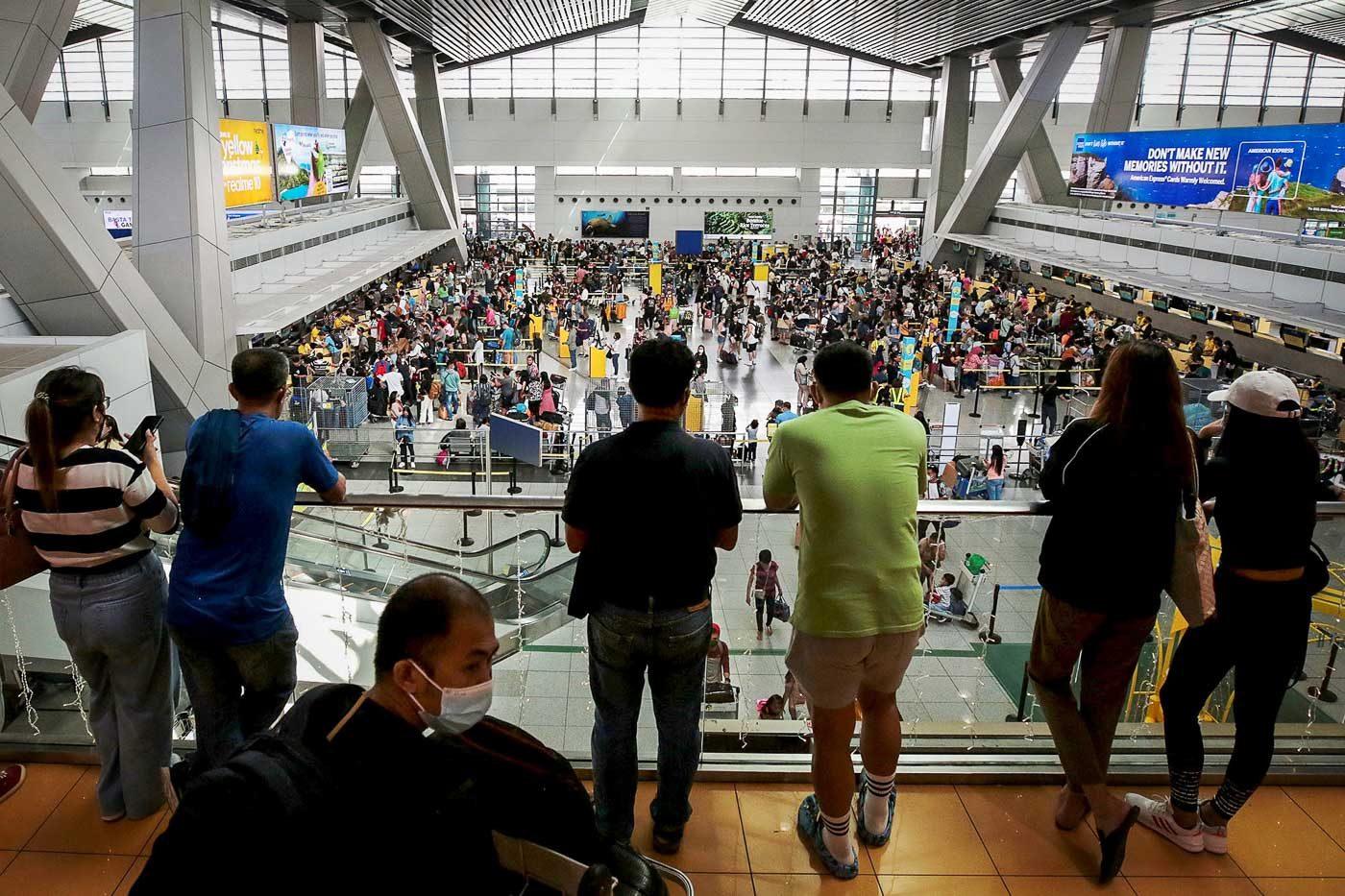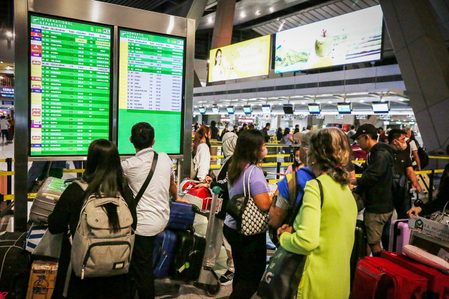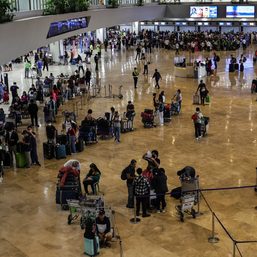SUMMARY
This is AI generated summarization, which may have errors. For context, always refer to the full article.

MANILA, Philippines – The Philippines is suffering from a brain drain of qualified air traffic controllers as they chase more competitive paychecks abroad, the Civil Aviation Authority of the Philippines (CAAP) said.
In a House committee meeting on Tuesday, January 10, officials from the CAAP, the Department of Transportation (DOTr), and Manila International Airport Authority gave a briefing on what transpired during the air traffic fiasco that affected more than 75,000 passengers on New Year’s Day.
One issue raised was that qualified air traffic controllers were being pirated abroad. Marlene Singson, head of CAAP’s air traffic control system, highlighted the gap in starting salary pay for air traffic controllers here and in other countries.
“It has been the cry of our air traffic controllers since decades ago,” she said during the House meeting.
The starting salary for air traffic controllers here is only about P40,000 a month. In Qatar, air traffic controllers can earn P380,000 a month, along with free housing benefits for them and their children.
Countries such as Qatar also only require two years of experience, meaning air traffic controllers who have completed basic training and have attained a rating for radar surveillance can already go for positions abroad that pay far higher salaries.
“There’s a Filipino community there in Qatar. All of them are air traffic controllers. And unfortunately, some of them are the ones inviting the other controllers who are here,” Singson added.
Nevertheless, CAAP assured that they had qualified personnel to run and maintain their air traffic management system.
“We have qualified electrical engineers. Not only qualified, but experienced. We also have technicians manning the different systems of the CNS/ATM. So qualified po ‘yan. They’re not only trained locally, but they were trained by the provider of the CNS/ATM as well,” CAAP Director General Manuel Tamayo said.
However, Tamayo admitted that their team was limited in the type of maintenance that they could do. For instance, they were not authorized to check the inner workings of some critical equipment, such as the circuit breakers, as this fell on the manufacturers.
“We are only authorized to do a certain level of maintenance. When it comes to deeper levels, we cannot touch that,” Tamayo said.
Faulty equipment
During the hearing, Tamayo also attempted to clear the record on the faulty equipment that led to the air traffic mess on January 1.
He clarified that the power outage was not the result of issues with the uninterruptible power supply (UPS), as initially speculated. Instead, it was a broken circuit breaker that caused both UPS units to automatically “de-energize,” or go into standby mode – a protective measure for the system.
“At around 9:49 am, the UPS de-energized the CNS/ATM equipment after a fault was detected in the main circuit breaker,” he said. “The flaw was a faulty signal coming from a damaged circuit breaker.”
CAAP engineers then manually reenergized the UPS and bypassed the circuit breaker to restore power to the Communications, Navigation and Surveillance Systems for Air Traffic Management (CNS/ATM) system. But by this time, the engineers had observed that certain equipment – such as the very small aperture terminals (VSAT), which receive satellite data used by planes and air traffic management systems – had already been damaged.
Later investigations found that the problem in the circuit breaker had come from an overvoltage that had somehow occurred, despite the multiple protective measures and redundancies in the system. Tamayo said that the circuit breaker is currently still being examined to find out the root cause of the problem. Only then could preventive measures be put in place.
“This circuit breaker is undergoing forensics. Based on the results of the forensics, we will know what exactly happened, and from there, we can determine if there will be any preventive measures to be done as far as this particular equipment is concerned,” he said.
CAAP has since replaced the faulty circuit breaker with the same model from the same manufacturer. But when lawmakers asked whether the replacement unit could suffer the same problem, Tamayo admitted that it was possible.
“Anything can happen. We can only improve our maintenance and improve our people,” he said.
Previously, Tamayo said that the outage happened when one of the UPS’ blowers “conked out.”
However, he clarified on Monday’s hearing that although one of the UPS units had a problem with its blower, both were found to be functional, following an inspection by the manufacturers. Nevertheless, CAAP pushed for an “emergency procurement” of two new UPS units, bypassing regular procedures.
For long-term measures, Tamayo said that CAAP planned to add another CNS/ATM to serve as a redundant system for the existing one. Upgrades to the existing system, which will cost P139 million, are expected to be completed in the first quarter of 2023.
He also added that a cyberattack was unlikely to be the cause of the system’s failures.
“The Cybercrime Investigation and Coordinating Cente conducted a parallel investigation of the incident on January 3, 2023. The result indicates that the incident is unlikely due to a cyberattack,” he said. – Rappler.com
Add a comment
How does this make you feel?






There are no comments yet. Add your comment to start the conversation.